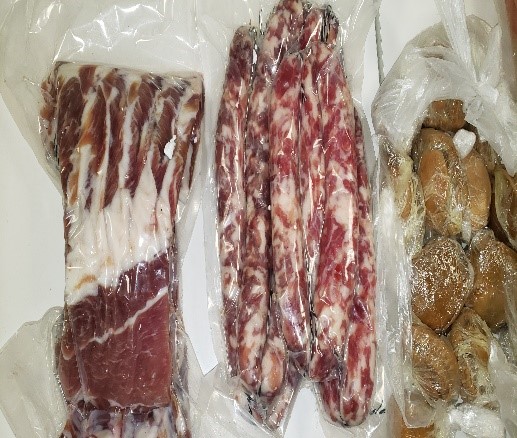JAMAICA, N.Y. — U. S. Customs and Border Protection (CBP) agriculture specialists at John F. Kennedy International Airport seized more than 20 lbs. of swine meat and 30 containers of edible bird’s nests from a passenger arriving on a flight from China.

On January 4, a passenger declared meat to a CBP agriculture specialist but indicated no other food products. During the subsequent examination the meat was confirmed to be prohibited. In addition, 30 containers of a food product known as “bird’s nests” were discovered. These real bird’s nests are produced around the world as a delicacy for human consumption.
Bird’s nests are prohibited in passenger baggage as they lack the proper documentation and safeguards to ensure they do not pose a risk to U.S. agriculture. CBP personnel seized all of the prohibited items and safeguarded them for destruction, as per United States Department of Agriculture (USDA) guidelines.
“This latest seizure highlights the vigilance and dedication to duty that our CBP Agriculture Specialists demonstrate daily to ensure that the United States is safe from unregulated food products entering our country that could potentially cause grave damage to our agricultural and economic vitality,” said Troy Miller, Director, Field Operations, New York Field Office.

CBP agriculture specialists issued the passenger a mitigated civil penalty for failing to declare they were in possession of the prohibited bird’s nest.
Animal disease outbreaks are a threat to the United States that can adversely affect public health, cause global trade halts, and destabilize the economy and our nation’s food supply.
CBP’s highly-trained agriculture specialists are the front line in safeguarding America’s agricultural resources. On a typical day in Fiscal Year 2019, CBP agriculture specialists throughout the nation seized 4,695 prohibited plants, meats, animal byproducts, and soils and intercepted 314 insect pests.
Learn more about how CBP Agriculture Specialists protect the United States from dangerous pests and disease that could affect the county’s economic vitality.

